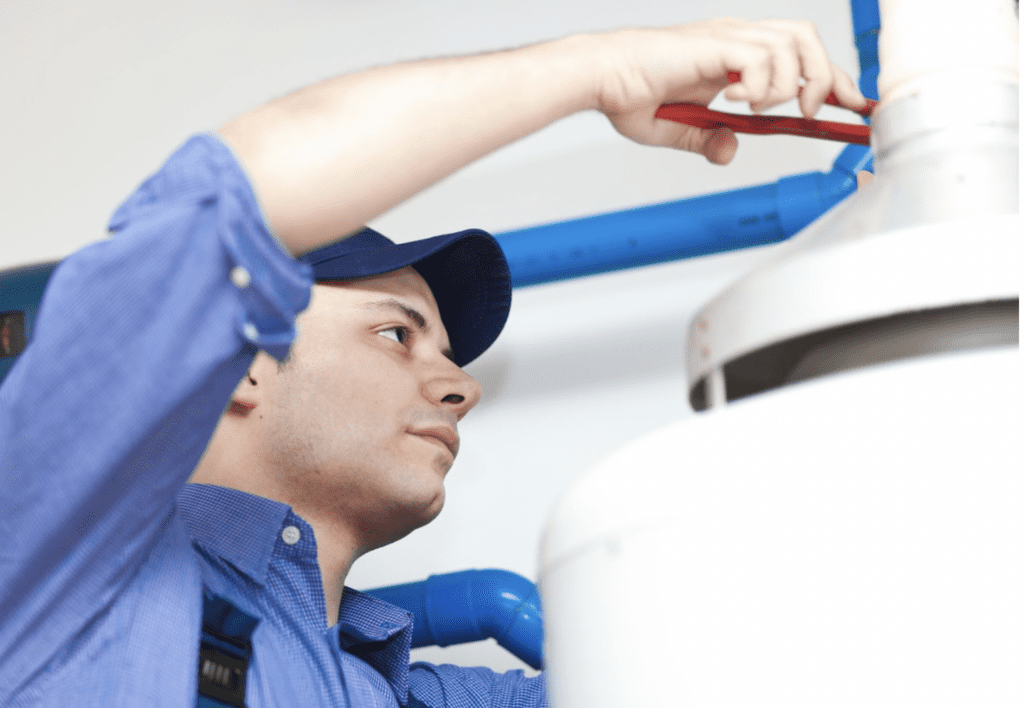
Although they may last up to 10-12 years, can water heaters explode? They definitely can, so it might be worth the second thought. Washing your hands off to confront an icy stream is no fun, but neither are malfunctions that can cause your water heater to explode. However, with proper care and precautions, you can keep your home or business safe without worrying about your water heaters exploding.
How Can Water Heaters Explode?
If your water heater explodes, you’ll be left without hot water for your showers, dishes, and clothes. Beyond losing these abilities, an exploding water heater is dangerous and can be terrifying. For example, a gas leak can expose your heater to the risk of fire–which is something you want to avoid. Given the dangers of exploding water heaters, it’s essential to recognize the signs to nip the issue in the bud.
Leaking Pressure Relief Valve
Primarily, water heaters explode because of excess pressure on your water heating system. Since high pressure is the leading cause of water heater explosions, a leaking pressure valve can cause issues. When a pressure valve leaks, it stops ensuring that too much pressure doesn’t build up in the tank. When the valve’s safety measure malfunctions, this also causes the pressure to build. If your valve is leaking, you might experience:
- Little to no water pressure
- Fluctuating water pressure
- Consistent humming noises
- High water pressure
Additionally, it’s not a good sign if your pressure relief valve is always open. When functioning correctly, the pressure relief valve should only open when relieving pressure once it hits a specific point. It also opens to allow cool water to enter when the water temperature reaches a certain point. If the valve is always open, your water heater cannot regulate internal temperature and water pressure. The pressure relief valve can malfunction when sediment clogs the valve and prevents it from opening and closing.
Sediment Build-Up
Speaking of sediment, it’s a good idea to keep an ear out for strange noises to catch a pressure build-up before it’s too late. Popping noises can happen when sediment builds at the bottom of your water heater. If a thick layer of sediment forms, this can function as a layer of insulation between the water and heater. The thicker the sediment build-up, the higher the temperature can get inside the water heater. This temperature increase is because the sediment can prevent efficient heating processes. The water trapped below the sediment boils, which is what causes the popping noise.
Sediment can also cause high pressure by clogging the component of the relief valve that opens to relieve pressure and regulate temperature. These are some signs that your water heater might have sediment build-up:
- Popping noises
- Brown water
- Unusual smell
- Little to no hot water
- Fluctuating water temperature
Discolored sink water is another sign of sediment build-up in your water heater. If brown water is coming from your faucet, you should be keen to act on fixing your water heater. When sediment isn’t the cause, it could be that rust has formed on your water heater pipes. Regardless of the reason, saying keen can help your family safe from direct risks–like that of contaminated water.
Poor Installation
Another possible indication that there is a risk of explosion is if your water heater was installed poorly. Stay alert about any possible smells. For example, a rotten egg smell occurs; this could be an indication that a gas leak is occurring. This should be paid extra attention, as the water heater’s pilot light can cause a damaging fire or explosion by igniting the gas. Smells to watch out for include:
- Rotten egg smell
- Sulfuric smell
Some mistakes that lead to poor installation include choosing the wrong size, improperly setting up the pressure relief valve, and choosing an inadequate material or location. In addition, installing a water heater on your own is risky. By calling an expert, you can erase those risks to ensure the safety of your home or business.
How Can I Prevent My Water Heater from Exploding?
The first step is to stay alert and aware of the above signs. Recognizing that you may have a problem with your water heater is essential to your family or business’ safety–don’t brush off any of these signs! If you see or smell something, say something. Here are some ways to be proactive when you suspect your water heater is malfunctioning.
Routine Flushing
Annually cleaning your water heater is a safe way to prevent sediment build-up, clogged pipes, and further issues. Start by turning the power off and removing the drain valve to flush your water heater. Next, drain the water heater and insert a long, narrow brush. Gently scrape the bottom and insides of the heater with the brush to loosen any sediments, calcium deposits, and rust. Finally, connect a garden hose to the drain valve to allow cold water to run into a bucket or drain pan until clear.
Consult an Expert
Although practices like flushing can keep your water hot and safe, identifying what needs to be repaired can be difficult and time-consuming. In addition, not all water heater issues can be fixed by these routine check-ups. Hiring an expert water heater repair technician can get you an accurate diagnosis and the work you need to repair or install a new water heater adequately.
Stay safe and in control with GoodBee Plumbing
At Goodbee Plumbing, we understand that plumbing issues can be stressful and unexpected. Accordingly, our expert team is dedicated to finding honest solutions with a fast, reliable, and compassionate approach. We can even offer same-day services to free your home or business of plumbing issues holding you back. So, if you are having trouble with your water heater or other areas, contact us today to schedule an appointment at 985-893-1883.
